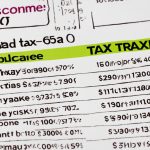The Bedroom Tax, also known as the under-occupancy charge or the removal of the spare room subsidy, is a reduction in Housing Benefit or the housing element of Universal Credit for people of working age who rent a home with a spare bedroom. The amount of the reduction depends on the number of spare bedrooms and can be 14% for one spare bedroom or 25% for two or more spare bedrooms. The cost of bedroom tax varies based on individual circumstances and the size of the property.
Calculating Bedroom Tax: Rules and Exemptions
When it comes to calculating bedroom tax, understanding the rules and exemptions is crucial. The calculation is based on the number of spare bedrooms in a rented home. According to the rules, certain individuals are allowed specific bedroom allocations:
- One bedroom for an adult over 16 years old
- One bedroom for a couple
- Two same-sex children under 16 years old
- Two children under 10 years old
- One bedroom for any other child
These rules determine the base allocation of bedrooms for individuals. However, there are several exemptions to the bedroom tax:
- Disabled people: In cases where a disabled child or adult cannot share a room due to their disability, they are exempt from the bedroom tax.
- Foster carers: Those who are fostering a child are exempt from the bedroom tax.
- Students or armed forces members: If individuals are away from their rented home due to studying or being in the armed forces, they are exempt from the bedroom tax.
- Domestic violence victims: Individuals who have had to flee their home due to domestic violence are exempt from the bedroom tax.
These exemptions take into consideration specific circumstances and aim to provide support for individuals who may encounter challenges due to the bedroom tax.

By understanding the rules and exemptions, individuals can determine their eligibility for exemptions and ensure accurate calculation of their bedroom tax. Seeking advice from local authorities or housing associations can provide further guidance on how the rules and exemptions apply to individual circumstances.
Understanding Bedroom Tax Regulations
In order to fully comprehend the implications of bedroom tax on your housing benefit, it is crucial to have a thorough understanding of the regulations surrounding this policy. The spare room subsidy, commonly referred to as bedroom tax, applies to individuals of working age who rent from their local council or a housing association. These regulations determine the number of spare bedrooms and the corresponding reduction in eligible rent, which can be either 14% or 25%.
By familiarising yourself with these regulations, you can better assess your eligibility for exemptions and available support options. Understanding bedroom tax empowers you to make informed decisions regarding your housing benefit and explore potential avenues of financial assistance.
Regulations Determining Spare Bedrooms and Rent Reduction
Under the bedroom tax policy, the number of spare bedrooms is a key component that influences the reduction in eligible rent. The regulations specify the permissible number of occupants per bedroom, which assists in determining whether there are any excess or spare rooms.
For instance, the regulations state that one bedroom is allowed for an adult over 16, a couple, two same-sex children under 16, two children under 10, or any other child. However, it is vital to note that there are exemptions for individuals with disabilities. If a disabled child or adult cannot share a room due to their disability, they may be eligible for an exemption from the bedroom tax.
Furthermore, other individuals may also be exempt from bedroom tax. This includes foster carers, students, members of the armed forces who are temporarily away, and individuals affected by domestic violence.
Assessing Eligibility for Exemptions and Support Options
Having a clear understanding of the bedroom tax regulations allows you to assess your eligibility for exemptions and support options. By being well-informed, you can determine whether you may qualify for an exemption based on your unique circumstances and specific needs.
If you believe that you are eligible for an exemption, it is crucial to gather the necessary documentation and evidence to support your case. This documentation will be essential when communicating with the relevant authorities and seeking any available exemptions.
Additionally, being aware of the support options that are available to you is equally important. This includes exploring financial assistance programs such as Discretionary Housing Payments (DHPs). DHPs provide additional payments from the local council to individuals who may be struggling to meet their rent payments due to the impact of bedroom tax. While DHPs are not awarded on an ongoing basis, understanding the application process and potential eligibility criteria can help alleviate some of the financial burden.

| Key Points | Benefits | Implications |
|---|---|---|
| Understanding the regulations | Allows for eligibility assessment | Accurate financial planning |
| Exemptions for disabilities | Relief from bedroom tax | Improved affordability |
| Other exemptions | Temporary relief or support | Assistance during exceptional circumstances |
| Support options | Potential financial assistance | Relief from financial burden |
Bedroom Tax Payment and Financial Assistance Options
When it comes to paying for the bedroom tax, the responsibility falls on the individual receiving Housing Benefit or the housing element of Universal Credit. However, there are options available for financial assistance to help individuals who may be struggling with their payments.
One such option is the Discretionary Housing Payments (DHP). DHPs are additional payments provided by the local council to support individuals who are finding it difficult to pay their rent due to the bedroom tax. It’s important to note that these payments are not awarded on a continuous basis and are subject to individual circumstances.
In addition to the DHP, there are other support options that individuals can explore. Seeking advice from relevant organizations, such as housing associations or local councils, can provide valuable information about available assistance programs. These organizations have knowledgeable advisors who can guide individuals through the process, helping them understand the various support options that may be available to them.
Exploring alternative housing options is another route to consider. Downsizing to a smaller property with fewer bedrooms may reduce or eliminate the bedroom tax payment altogether. Housing associations and local councils may have schemes in place to assist with downsizing, helping individuals find suitable accommodation that better aligns with their needs and financial circumstances.
Remember, it’s essential to stay informed about the latest updates and changes in regulations regarding the bedroom tax and financial assistance options. By taking advantage of available support and seeking expert advice, individuals can navigate the challenges posed by the bedroom tax and find viable solutions that alleviate financial strain.
Financial Assistance Options for Bedroom Tax Payment
Here are some financial assistance options to consider when it comes to payment of the bedroom tax:
- Discretionary Housing Payments (DHP) – Extra payments from the local council to help individuals struggling with bedroom tax payment.
- Seeking advice from housing associations or local councils for guidance on available support options.
- Exploring alternative housing options, such as downsizing to a smaller property with fewer bedrooms.
Bedroom Tax Impact on Benefits and Housing Options
The implementation of the bedroom tax can have a significant impact on individuals’ housing benefits, especially those who have one or more spare bedrooms. The reduction in eligible rent under this policy results in individuals having to pay a larger portion of their rent from their other sources of income. Consequently, this reduction in benefits may adversely affect the affordability of their current housing situation.
As a result of the bedroom tax, individuals may need to explore alternative housing options to mitigate the financial strain. One potential solution is downsizing to a smaller property that better aligns with their financial means. By moving to a residence with fewer bedrooms, individuals can reduce their housing costs and potentially avoid the financial burden brought about by the bedroom tax.
Another option for individuals impacted by the bedroom tax is to seek support from their local council or housing association. These organizations can provide valuable assistance and guidance, helping affected individuals identify suitable housing options and explore potential financial aid programs. By tapping into these resources, individuals can better navigate the challenges posed by the bedroom tax and ensure that their housing needs are met.
Housing Options Comparison
| Option | Advantages | Disadvantages |
|---|---|---|
| Downsizing | – Reduced housing costs – More manageable living space – Potential to avoid bedroom tax |
– Need to adjust to a smaller living space – Potential disruption in the community |
| Seeking Support from Local Council or Housing Association | – Access to professional advice and guidance – Potential financial assistance programs – Chance to explore suitable housing alternatives |
– Limited availability of suitable properties – Qualification requirements for support programs – Lengthy application process |
When faced with the challenges of the bedroom tax, it is crucial for individuals to carefully consider their housing options and make informed decisions that align with their financial circumstances and personal preferences. By weighing the advantages and disadvantages of each option, individuals can navigate this difficult situation and find a housing solution that best suits their needs.

Bedroom Tax Application and Appeals Process
The application process for bedroom tax is an important step in assessing the impact on your housing benefit. To begin, you will need to determine the number of spare bedrooms in your household. This assessment will help determine the reduction in benefits you may be eligible for based on the rules and regulations surrounding bedroom tax.
If you believe there has been an error in the decision or you wish to challenge the reduction in benefits, you have the right to appeal. The appeals process allows you to present your case and provide any additional evidence or documentation to support your claim. It is crucial to gather all relevant information to substantiate your appeal.
Seeking legal advice during the appeals process can be beneficial. Legal professionals specializing in bedroom tax can provide guidance, navigate the appeals process, and ensure you understand your rights and options. They can also help you prepare a strong case and present it effectively.
Gathering documentation for your appeal
When preparing for your bedroom tax appeal, it is important to gather all relevant documentation and evidence to support your case. This may include:
- Official letters or notices related to your housing benefit
- Proof of any disability or medical condition that impacts your need for additional bedrooms
- Supporting documents from healthcare professionals, social workers, or expert witnesses
- Any other relevant information or evidence that strengthens your appeal
By providing comprehensive documentation, you can strengthen your appeal, increase your chances of success, and demonstrate the true impact that bedroom tax has on your housing situation.

Understanding the process
The bedroom tax appeals process can vary depending on your specific circumstances and local authority. It is essential to familiarize yourself with the specific procedures in your area to ensure you meet all requirements and deadlines.
In general, the appeals process involves:
- Submitting a written appeal to the relevant authority, usually your local council or housing association
- Providing all necessary documentation and evidence to support your claim
- Attending any hearings or meetings related to your appeal
- Receiving a decision on your appeal
Keep in mind that the length of the appeals process can vary, and it may take some time to receive a decision. During this time, it is crucial to stay informed and communicate promptly with the relevant authorities.
Remember, seeking legal advice can help you navigate the appeals process with confidence and ensure you have the best chance of a successful outcome. Legal professionals can provide expert guidance specific to your situation and help you make informed decisions throughout the process.
Conclusion
The bedroom tax is a complex issue that affects individuals who rent from their local council or housing association. The cost of bedroom tax varies based on individual circumstances and the number of spare bedrooms.
Understanding the rules and exemptions can help individuals assess their eligibility for support options and financial assistance. It is important to stay informed about any changes in regulations and seek advice when needed.
By being aware of the impact of bedroom tax and exploring available resources, individuals can make informed decisions about their housing options and navigate the challenges posed by this policy. Stay proactive in seeking support and staying informed to manage the implications of bedroom tax effectively.
FAQ
1. How much is bedroom tax?
The cost of bedroom tax varies based on individual circumstances and the number of spare bedrooms. The reduction in Housing Benefit or the housing element of Universal Credit can be 14% for one spare bedroom or 25% for two or more spare bedrooms.
2. How is bedroom tax calculated?
Bedroom tax is calculated based on the number of bedrooms that are deemed to be spare according to the regulations. The rules state that one bedroom is allowed for an adult over 16, a couple, two same-sex children under 16, two children under 10, or any other child. However, there are exemptions for disabled people and other special circumstances.
3. What are the exemptions and exceptions for bedroom tax?
Exemptions for bedroom tax include disabled people, such as a disabled child or adult who cannot share a room due to their disability, foster carers, students or members of the armed forces who are away, and those affected by domestic violence. There are also exceptions for certain circumstances and household compositions.
5. How does bedroom tax impact housing benefit?
Bedroom tax can have a significant impact on housing benefits, especially for individuals who have one or more spare bedrooms. The reduction in eligible rent can result in individuals having to pay more of their rent from their other income, which may affect the affordability of housing. It is important to explore alternative housing options and seek support from local councils or housing associations if needed.




















No Comments
Leave a comment Cancel